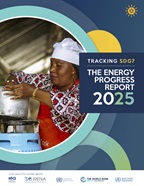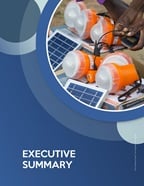
Health science and policy summaries
Concise overviews of current evidence on air quality, energy access, climate change, and health
Highlights

Concise overviews of current evidence on air quality, energy access, climate change, and health

WHO invites governments, agencies and organizations to pledge voluntary actions to reduce the health impacts of air pollution by 50% by 2040.
.jpg?sfvrsn=d51a0bea_8)
Stop polluting the air we breathe – prevent diseases and save lives
/country-readiness-strengthening-(crs)/community-readiness-and-resilience-(crr)/beat-the-heat-banner-cropped.jpg?sfvrsn=a5bbb703_3)
Initiative against extreme heat and related environmental health risks in workplaces and major events
News
All →Factsheets
All →Calls For
All →WHO, as the coordinating authority on international health, supports countries in protecting public health through evidence-based policies and actions....
Exposure to air pollution and its associated health impacts are affected by land use practices including their regulation and enforcement. Understanding...
Exposure to green spaces is widely associated with health benefits, including mental (e.g. reduced risk of depression and anxiety), physical (e.g. improved...
Sand and dust storms (SDS) result from turbulent winds that raise large quantities of particles from the ground into the air in emission areas. Emission...

Tracking SDG 7: The Energy Progress Report 2025 finds that almost 92% of the world’s population now has basic access to electricity. Although this...

The Energy Progress Report 2025 finds that almost 92% of the world’s population now has basic access to electricity Although this is an...

The directory is an online repository with more than 200 open access resources and tools updated on a regular basis that provide information on the importance...

The WHO Air Quality, Energy and Health Science and Policy Summaries (SPS) provide concise overviews of current knowledge and evidence on topics related...
Multimedia
All →VGS Why does WHO consider air pollution a major public health emergency? If you live in areas with high levels of air pollution, does COVID-19 impact you differently? Hello and welcome to Science in 5, I'm Vismita Gupta-Smith. We are talking to Dr. Maria Neira today. Welcome, Maria. Maria, let's start with why does WHO consider air pollution a major public health emergency?
MN Hello, everyone. Well, when you have more than 7 million premature deaths every year, every single year associated with exposure to air pollution, I'm sure that everybody agrees that this is a major public health issue. Actually, nine out of every 10 people around the world, particularly those living in cities, are breathing air that is not consistent with what WHO considers the good standards according to our air quality guidelines for breathing and still be healthy. And, you know, for many years, we thought and most of the diseases linked to exposure to air pollution were considered only to be affecting our respiratory system. And this is still true. Very much. Exposure to air pollution is responsible for chronic obstructive pulmonary diseases, lung cancer, pneumonia, name it. But in addition to that, we know now that these toxic particles will come to our lungs and from there to the bloodstream will reach our cardiovascular system and then be responsible for ischemic heart diseases, for neurological disorders, for stroke, for neurological problems as well in general and reproductive system issues. So, as you can imagine, all of those reasons tell us consider that air pollution is one of the biggest public health issues we are confronting today.
VGS Maria, if a person is living in a highly polluted environment where whether air pollution levels are very high. Does COVID-19 impact them differently?
MN Yes, we have now more and more scientific evidence. One reason is that exposure, long term exposure to air pollution will affect your immune system and therefore will make you more susceptible to any type of respiratory diseases. And obviously, COVID-19 is a respiratory disease. In addition to that, we know that exposure to air pollution will increase the risk for chronic diseases like cardiopulmonary, like metabolic diseases, diabetes. And we all know now that those diseases are the so-called co-morbidities that will increase the risk for more severity and even later outcome if you are a patient with COVID-19. So, yes.
VGS Maria, when we think about air pollution, it seems like the scale is so big and what can we do to reduce it? Share with us some examples of initiatives that governments and organizations took, which actually reduced air pollution.
MN Well, clearly the best way to reduce air pollution will be stop burning fossil fuels. I mean, that combustion of the fossil fuels is contributing not only to climate change, but to generate this high level of pollutants that then end up in our lungs. So changing that policy around which source of energy we are using will be one of the most effective. Legislation, go for enforcing the air quality guidelines of WHO. But if we go to concrete measures, of course at the city level, you have measures now going for change in the transport, the public transport system they have, promoting more sustainable ways of public transport, reducing the use of private cars, going for more efficient energy use of our buildings, making sure that they reduce the traffic congestion in certain areas. And we can see that all of those measures are immediate. They have immediate positive outcomes. Obviously, as an individual, the best you can do is to put pressure on your politicians, on your mayors. Make sure that there are systems to monitor the air quality that you are breathing every day in your city. And by doing so, ensuring that measures are taken at the political level. If the situation on air pollution is really bad, if we take measures, there is optimism. You can see that in European countries, for instance, or North America, the situation improved very much in the last 20 years. We are still far in other parts of the world and we still need to put in place measures on sustainable transport, a clean and modern use of energy sources and all our way of consuming, recycling. And therefore we will be able to tackle this huge problem of air pollution. Tackling the causes of climate change will bring enormous benefits as well on reducing the causes of air pollution and therefore contributing enormously to our health.
VGS Thank you, Maria, for explaining this link, this interconnectedness between our health and that of the planet. Thank you very much. That was Science in 5 today. Until next time then. Stay healthy, stay safe and stick with science.